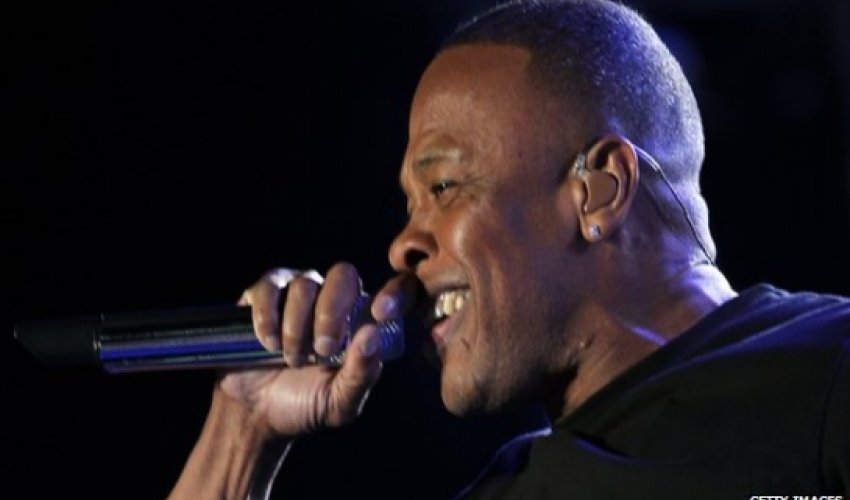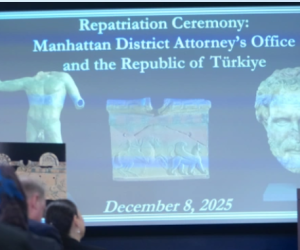Dr Dre: The first 'hip-hop billionaire'?

That's the boast made by singer-songwriter Tyrese Gibson in a video posted on Facebook (and later removed), before he is pushed aside by Dr Dre, the co-founder of the Beats Electronics firm.The list of the richest people on the planet, says the 49-year-old hip-hop star and entrepreneur, has changed "in a big way"."The first billionaire in hip hop right here from the... West Coast believe me," says Dr Dre, before the video abruptly ends.By most accounts, Apple's $3bn (£1.8bn) acquisition of the Beats headphone and music streaming service will increase Dr Dre's net worth from an estimated $550m to almost $800m - making him, if not hip-hop's first billionaire, certainly hip-hop's wealthiest man.So how did Dr Dre, born Andre Romelle Young in inner-city Los Angeles, build his fortune?Borne of necessityDan Charnas, a former hip-hop record producer and author of The Big Payback: The History of the Business of Hip-Hop, says that Dr Dre's business acumen was shaped by the culture of hip-hop in the 1980s, which was of necessity more entrepreneurial."There's a long tradition of entrepreneurship for artists in the hip-hop business because there was no other way they were going to get out there," says Mr Charnas, noting that in the 1980s, major record labels and radio stations were hesitant to invest in and promote hip-hop music."Russell Simmons [and Rick Rubin] had to start their own music company if people were going to hear these records," he adds, referring to Def Jam records, one of the first and most successful hip-hop labels."The hustle of that extended to everything."DiversifyDr Dre was certainly part of that early, scrappy hip-hop milieu.Although he first found success as a musician with the World Class Wreckin' Cru and then with the seminal group N.W.A. - pioneers of gangsta rap - he was also a keen collaborator and producer, thus ensuring he had two revenue streams: one from performing, and another from producing.Just a year after he released his debut album, The Chronic, in 1992 - which sold three million copies and won a Grammy award - Dr Dre also helped produce Snoop Dogg's first album, Doggystyle - which sold an astonishing five million copies.He also, like many hip-hop stars of the era, made sure that he earned a cut of his own sales as a producer - eventually becoming, according to Rolling Stone magazine, "the single most influential producer in hip-hop history".After a falling out with his first label, Death Row Records, due to a contract dispute (amongst other concerns), Dr Dre negotiated a deal with Interscope to start his own label, Aftermath Entertainment, in 1996.He then signed and helped produce albums by young hip-hop artists, most notably Eminem, before selling his share of the label back to Interscope in 2001 for a reported $35m (£21m).Brand powerAlthough he rose to fame as a performer, Dr Dre hasn't released a solo album since 1999.Instead, he has capitalised on a trend in hip-hop that sprung up during the 1990s, when the genre's biggest stars, like Jay-Z and Sean "Puffy" Combs - aka P Diddy - launched their own clothing labels and consumer products.Jay-Z founded Rocawear and Mr Combs founded Sean Jean. Both are worth many millions of dollars."Why beg Adidas for an endorsement deal and make them all the money when you could put your own clothing out and do it yourself?" says Mr Charnas of the entrepreneurial spirit which pervaded hip-hop at the time.Dr Dre was similarly pushed into consumer branding, but he took a slightly different route.As the possibly apocryphal story goes, Dr Dre's lawyers had asked him to endorse sneakers.He ran into then-Interscope chairman Jimmy Iovine on the beach, who said something along the lines of "[Expletive] sneakers, lets sell speakers".'The way I do'From there, the pair first partnered with Monster, a well-respected audio firm known mostly for their HDMI cables, to design and manufacture the Beats headphones. (In 2012, Monster and Beats announced the partnership had ended.)"Monster had a good name in audio circles," says Mr Carnas of the early hype surrounding the headphones, which soon became known as accessories for the "true" music lover.The Monster reputation helped - but so did celebrity endorsements, which included Lady Gaga, as well as prominent placement within music videos."Beats is viewed as a triumph of marketing more than it is a fantastic product - there are a lot of people who feel there are better headphones to be bought in the market," says Mr Charnas.Dr Dre used his reputation as a producer to market the product, saying: "Hear what the artists hear, and listen to the music the way they should; the way I do".But the hip-hop artist has previously maintained that for him, it isn't all about the cash.In an interview with Esquire last year, he talked about turning down potential investors by telling them he doesn't need any more money."That part is entertaining, because people look at you like you're crazy when you say you don't need any more money - who says that?" he said.Perhaps hip-hop's richest man does. At least until Apple comes knocking.(BBC)Bakudaily.az
Latest news 
More news 



































 Photo
Photo 



 Video
Video 

